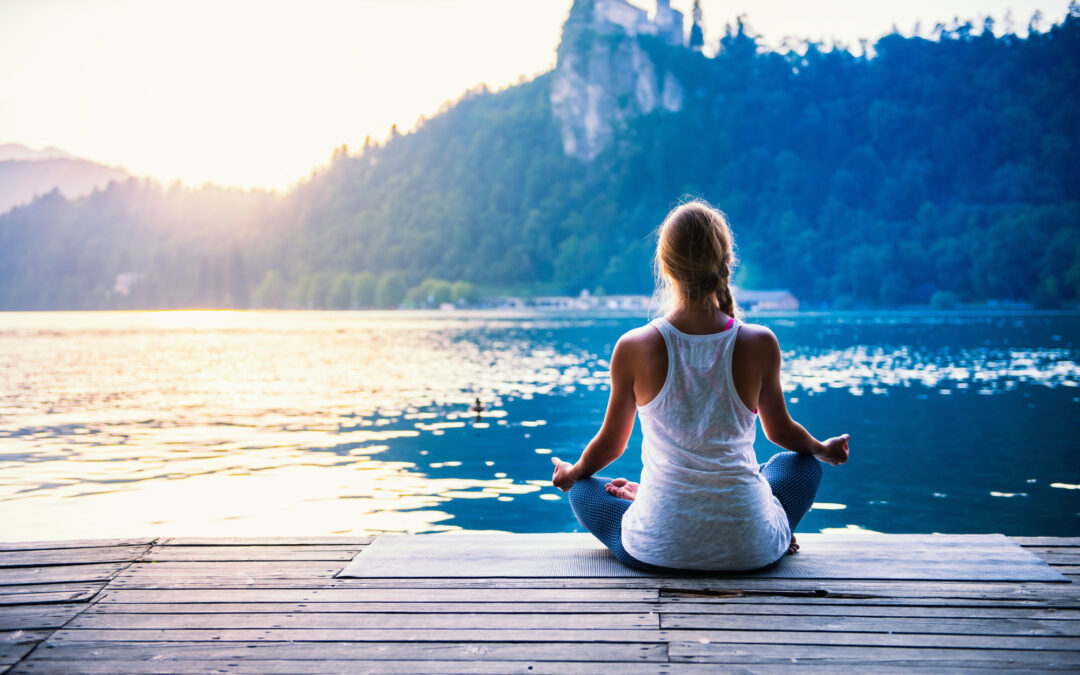Attending therapy sessions is an excellent way to ease anxiety. During your sessions, you’re able to sit down and discuss your anxiety and treatment plans to help reduce anxiety. Unfortunately, you’ll most likely experience anxiety attacks when you’re not face-to-face with your therapist. When an anxiety attack happens during daily life and you’re on your own, how will you begin to ease your own anxiety? There are several methods you can use to begin easing anxiety when you don’t have your therapist by your side.
Once you’re able to take what you learn in your sessions and implement techniques into your daily life, you can begin to take back that control.
In the guide below, you’ll learn how to stop an anxiety attack. The power is in your hands! Continue reading to find out more.
1. Write It Down
When there’s something bothering you, write it down. Writing down all the things that cause you anxiety or stress is a great way to get them out of your head and onto paper. You might even feel more accomplished after doing so.
For example, do you have several work assignments due all within a short time frame? Is there an endless amount of errands you need to run before the day is over? Life gets busy and this can become stressful, causing anxiety.
Take the time to write a to-do list or write down anything that’s bothering you. You can then begin to brainstorm and write possible solutions that would help you feel more at ease. Another writing trick to help ease anxiety is to start each morning by writing in your gratitude journal.
A gratitude journal is a place where you write down everything you’re thankful for. This will help you start each day with a positive mindset.
2. Practice Deep Breathing
Deep breathing exercises can help you take your mind off of the things causing you anxiety and refocus your mind on the present moment. There are a few different deep breathing exercises you can try. The great thing about these exercises is that they’re easy to do and you can do them anywhere.
It can be as simple as finding a place you feel comfortable sitting in. Then, close your eyes and take a deep breath. Hold it for a couple of seconds and then release it.
Do this a few times. While taking in your breath, try to focus on how your physical body feels. Notice how the air feels as it passes through your nostrils and fills your lungs.
Concentrate only on the present moment. After a few breaths, you can open your eyes and feel relieved.
3. Do Something Fun
Did you know smiling releases endorphins? That’s right! Smiling is good for your mental health.
When’s the last time you smiled or truly laughed? No matter how busy life gets, you must find time for yourself and your mental health. Think about old hobbies you used to love doing.
Think back to what you enjoyed doing when you were younger. Then, set aside a specific time during your week to do this hobby. It could be painting, drawing, fishing, cycling, swimming, or something else.
It could even be a friend date you set up with some old friends. Find something that makes you happy and make it a weekly priority.
5. Start Organizing
Lots of clutter, mess, and disorganization can cause even more stress and anxiety. If you notice your office or home beginning to get lost in all the clutter, then it might be time to start organizing. Start by getting rid of any items you no longer have use for.
Sell, donate, or trash certain items. Then, begin to organize the items you do need. Come up with creative storage ideas that’ll help you keep things cleaned and organized for years to come.
After organizing and clearing up space, your brain can then function with ease, not having any distractions.
6. Take a Time Out
As children, we dreaded time out. As adults, we sometimes need to give them to ourselves. When you feel yourself becoming overwhelmed or feel an anxiety attack coming on, take a time out.
Take a step back from the thing causing you anxiety and meditate, listen to music, practice yoga, take a walk in the park, or do something else that’ll bring you peace. This also gives you some time to clear your mind so when you’re ready to tackle the issue at hand, you can do so with the right mindset.
7. Limit Caffeine and Alcohol
Drinking large amounts of caffeine or alcohol throughout the day can increase your anxiety. To keep anxiety at a low, try to find other energy solutions. What other things can you do to stay energized?
Exercising daily and eating healthy meals and snacks during the day are two natural ways to stay awake. What other recreational activities can you do to have fun rather than drinking alcohol or hanging out at the bar?
Spend time outdoors and do something more active, such as visiting the movie theater.
8. Try Aromatherapy
Aromatherapy is another type of anxiety treatment and is good way to relax your mind and body. If you’ve recently been to a spa for a massage, then you might have noticed the use of aromatherapy there. Fortunately, you don’t have to wait until your next massage appointment to receive the benefits of aromatherapy.
You can purchase essential oils online or in a vitamin shop or a health food store. Make sure you do your research on the brand and only purchase high-quality oils. Then, pick up an oil diffuser from the store.
Add a few drops of water into the diffuser, following the directions (all diffusers are different), and then relax. Different oils help with different things, so make sure you’re using an oil that’ll relax you, such as chamomile or lavender.
You Can Start Easing Anxiety Right Now
Anxiety attacks can have a big impact on daily life. They can get in the way of your mood, how you function throughout the day, and more. You can start easing anxiety attacks right now by following the tips given in this guide.
Ready to speak with your own therapist, and start anxiety therapy?
Get started today by scheduling a phone consultation.


 I’m Olja Haglund, a licensed master social worker (LMSW) and certified advanced alcohol and drug counselor (CAADC) in Grand Rapids, MI. I partner with clients to achieve specific goals, make changes, and develop coping skills that make life easier to live authentically.
I’m Olja Haglund, a licensed master social worker (LMSW) and certified advanced alcohol and drug counselor (CAADC) in Grand Rapids, MI. I partner with clients to achieve specific goals, make changes, and develop coping skills that make life easier to live authentically.